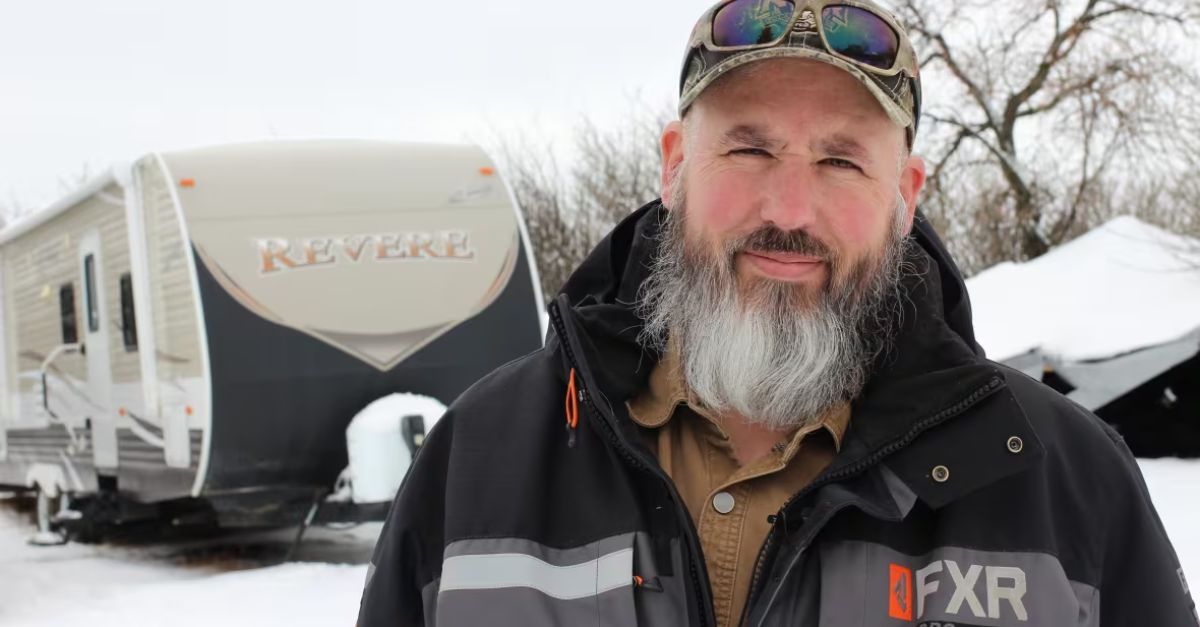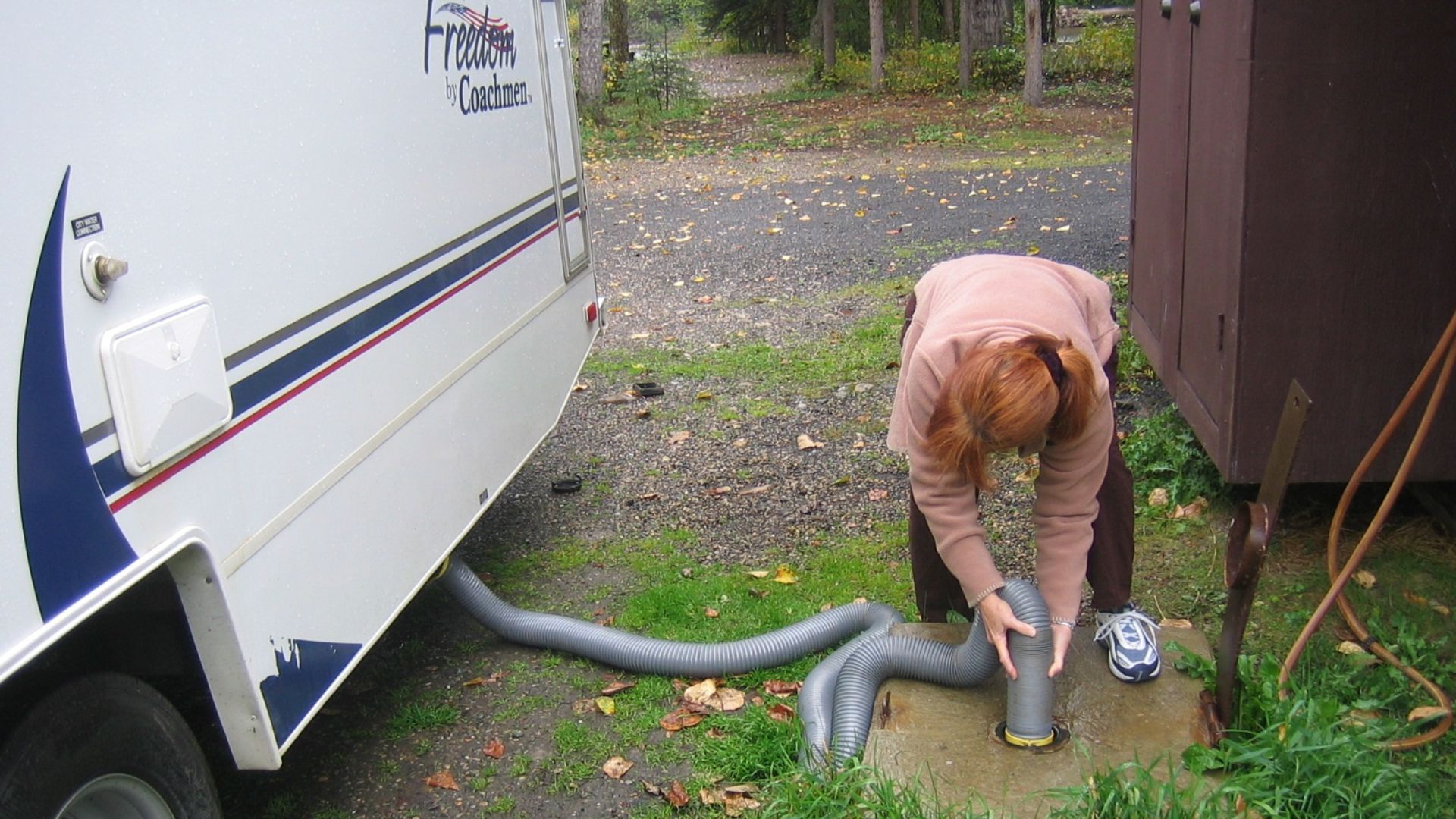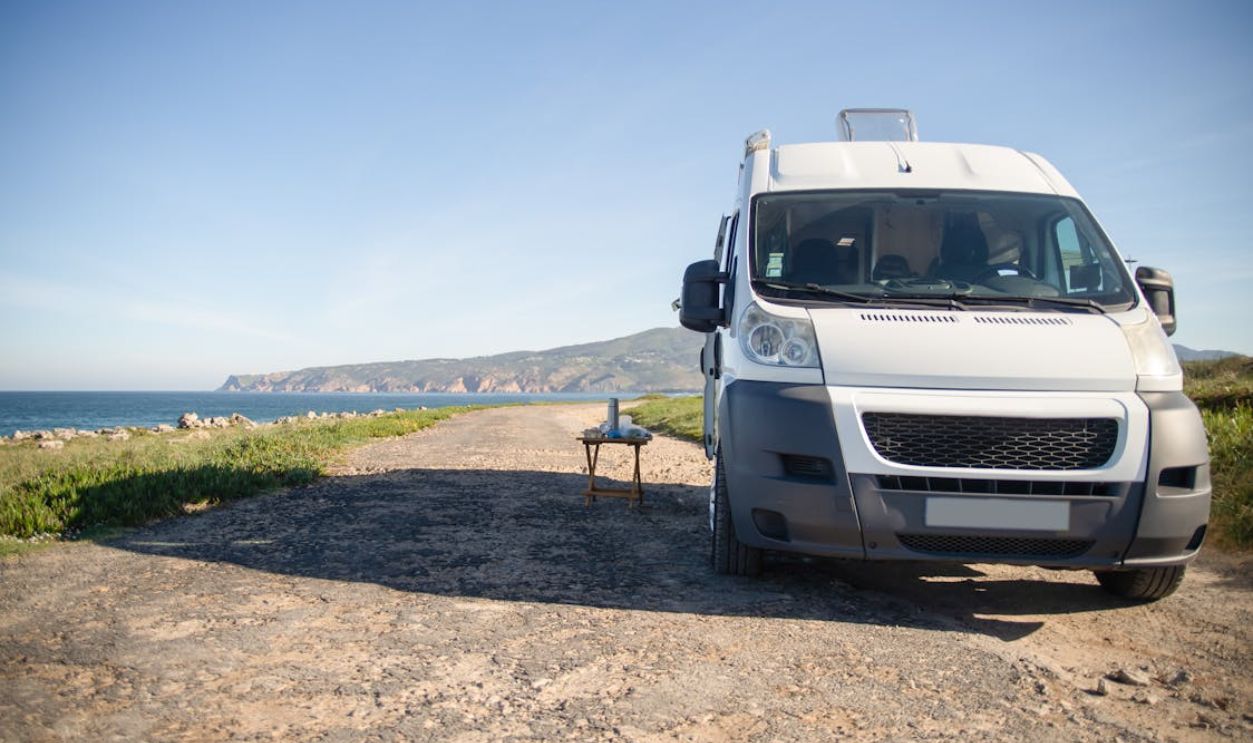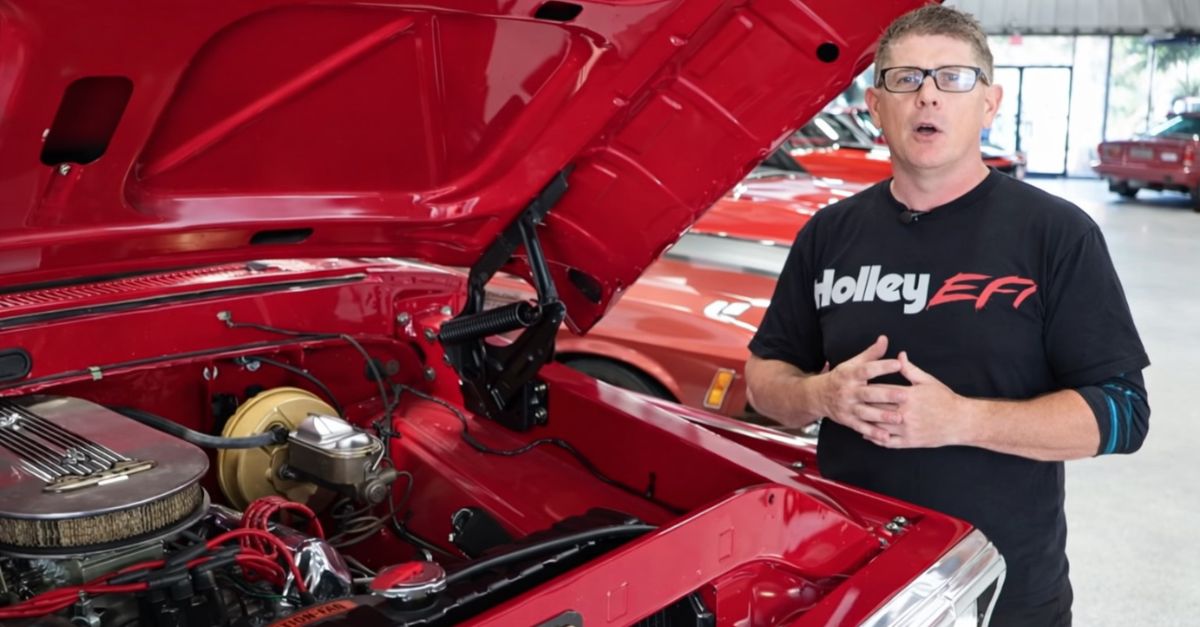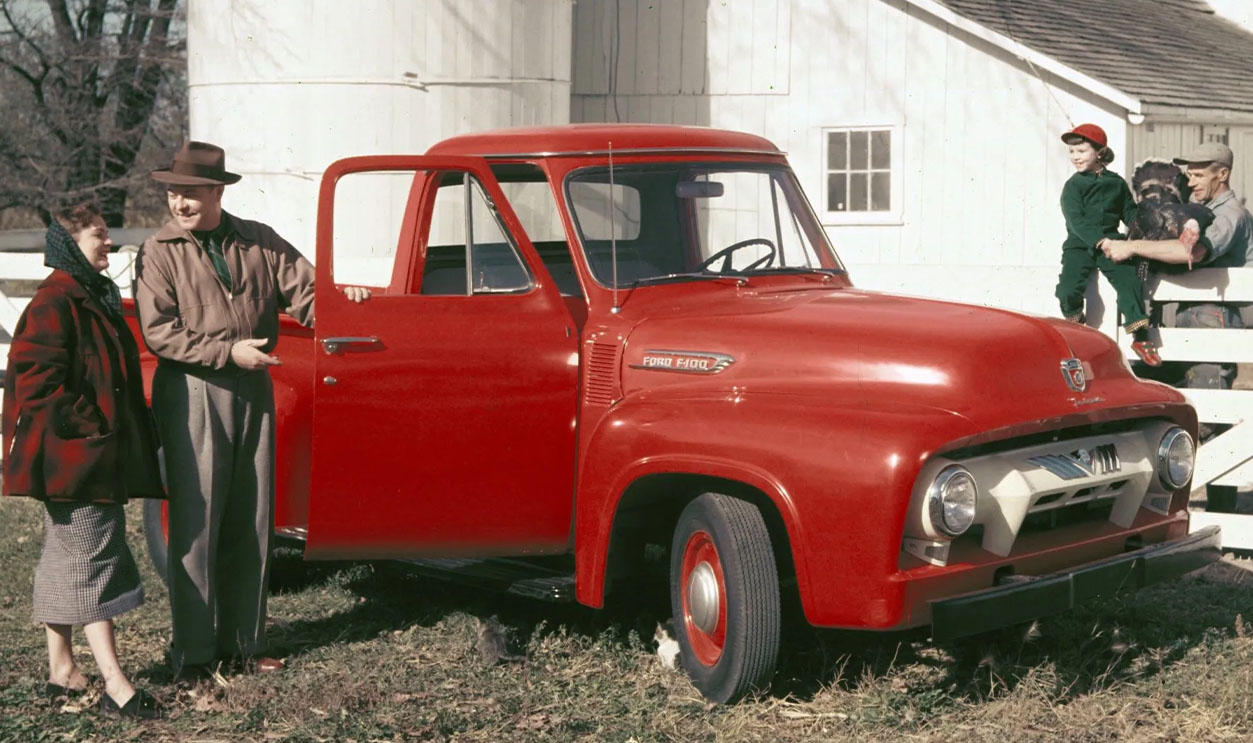RV Mistakes That Could Get You In Legal Trouble
RV adventures come with freedom, but not paying attention to the law could turn that freedom into a costly mistake. Many RVers unknowingly break local laws, which can lead to fines or worse.

Overnight Parking In Non-Designated Areas
Many RVers don’t realize that parking overnight in non-designated areas, such as shopping centers or residential streets, can be illegal. Local ordinances in many cities restrict overnight parking to specific areas. Violating these rules may result in fines, and in some cases, the RV can be towed.
 Overnight RV Camping at a WALMART Parking Lot! - Super Sketchy by The Endless Adventure
Overnight RV Camping at a WALMART Parking Lot! - Super Sketchy by The Endless Adventure
Improper Disposal Of Waste
Improper disposal of gray or black water is more than just unsanitary—it’s illegal. Dumping waste in unauthorized locations, like public restrooms or natural areas, is prohibited under environmental protection laws. Not only does this risk polluting local water supplies, but it can also result in fines or even criminal charges.
Not Following Weight Limits
RV weight limits are carefully regulated, and exceeding these can have serious consequences. Whether driving a motorhome or towing a trailer, failing to adhere to weight limits can cause mechanical failures or unsafe driving conditions. In some states, RVs that are too heavy can be cited, and owners may pay fines.
Illegal Use Of RV Parks
Most parks are designated for short-term stays, but some visitors unknowingly try to use them as long-term residences, which is often illegal. Local zoning laws often prevent full-time RV living in certain areas. Ignoring this can lead to eviction or even the loss of your space within the park.
Parking In Front Of Fire Hydrants
Blocking a fire hydrant is a major safety violation, especially when you’re in an RV. Even though the space may seem like a convenient parking spot, it is illegal in most municipalities. If an emergency occurs, blocking access to the hydrant could delay response times, resulting in substantial fines.
Traveling Without The Proper Driver’s License
Driving a camper often requires a specialized driver’s license, particularly for vehicles exceeding certain weight limits. Many owners mistakenly believe their regular license suffices. However, some states mandate a commercial or special driver’s license for larger RVs. Failure to obtain the appropriate documents could lead to hefty fines or even legal trouble.
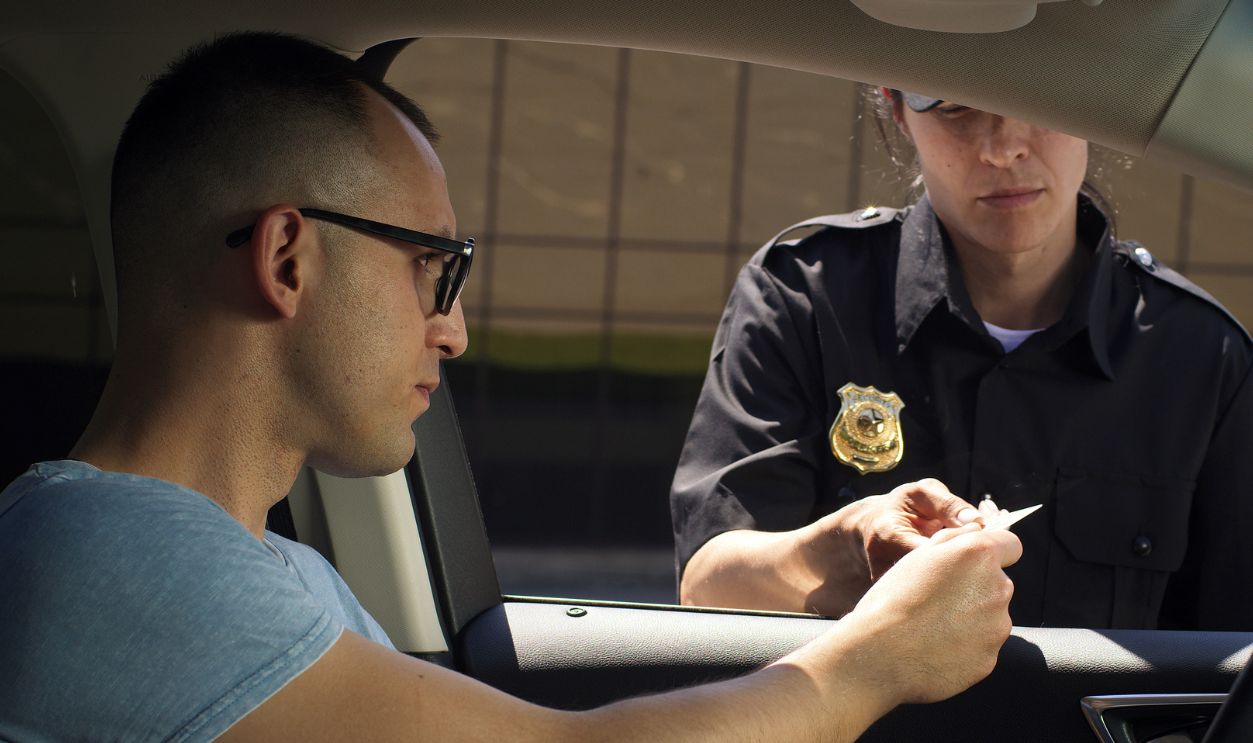 Frame Stock Footage, Shutterstock
Frame Stock Footage, Shutterstock
Driving Without Insurance
Insurance is a must, but not everyone is aware of the legal requirements. In many states, RVs are required to have specific types of coverage, especially if you plan to travel frequently. Driving an uninsured motorhome is not only risky but illegal as it leaves you open to significant financial loss if an accident occurs.
Using Generators After Hours
Many campgrounds and parks have strict regulations regarding noise levels, particularly after certain hours. Using a generator late at night can disturb fellow campers and violate local noise ordinances. Ignoring such rules could lead to fines or eviction from the park. It also diminishes the peaceful experience of trailer travel.
 Eslam Mohammed Abdelmaksoud, Pexels
Eslam Mohammed Abdelmaksoud, Pexels
Not Following Emissions Laws
Just like any other vehicle, RVs are subject to emission standards. However, many owners unknowingly fail to comply with these regulations, especially in states like California, which have stringent environmental laws. Driving a mobile home that doesn’t meet these standards can lead to high fines and, in some cases, the inability to register your vehicle.
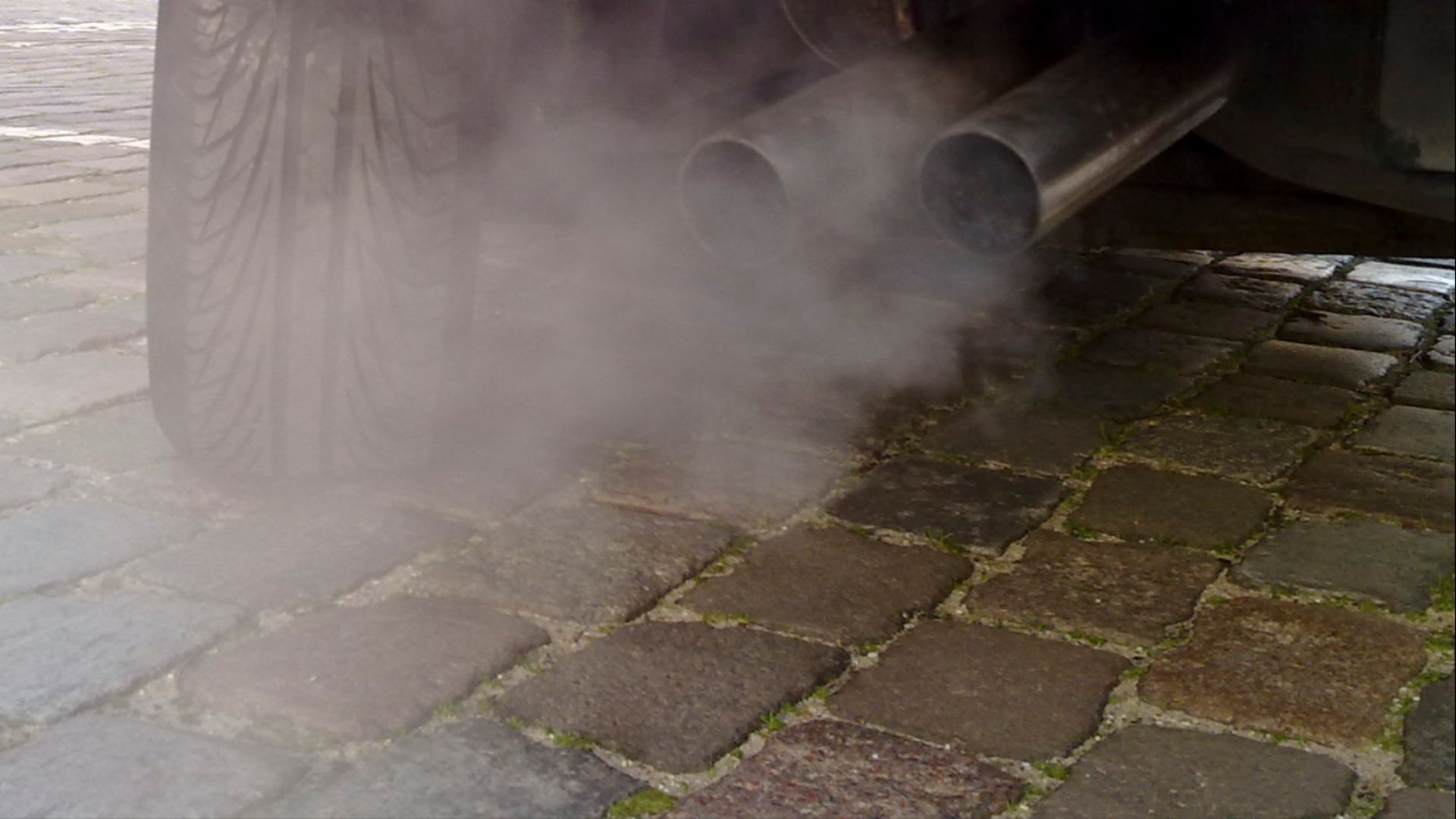 Ruben de Rijcke, Wikimedia Commons
Ruben de Rijcke, Wikimedia Commons
Leaving An RV Unattended While Running
Leaving your RV idling or running unattended is illegal in many states, particularly when parked in public spaces. Not only does this waste fuel, but it also poses safety risks, especially if the vehicle is left in gear or near a busy area. Keep your camper turned off when not in use to avoid legal consequences.
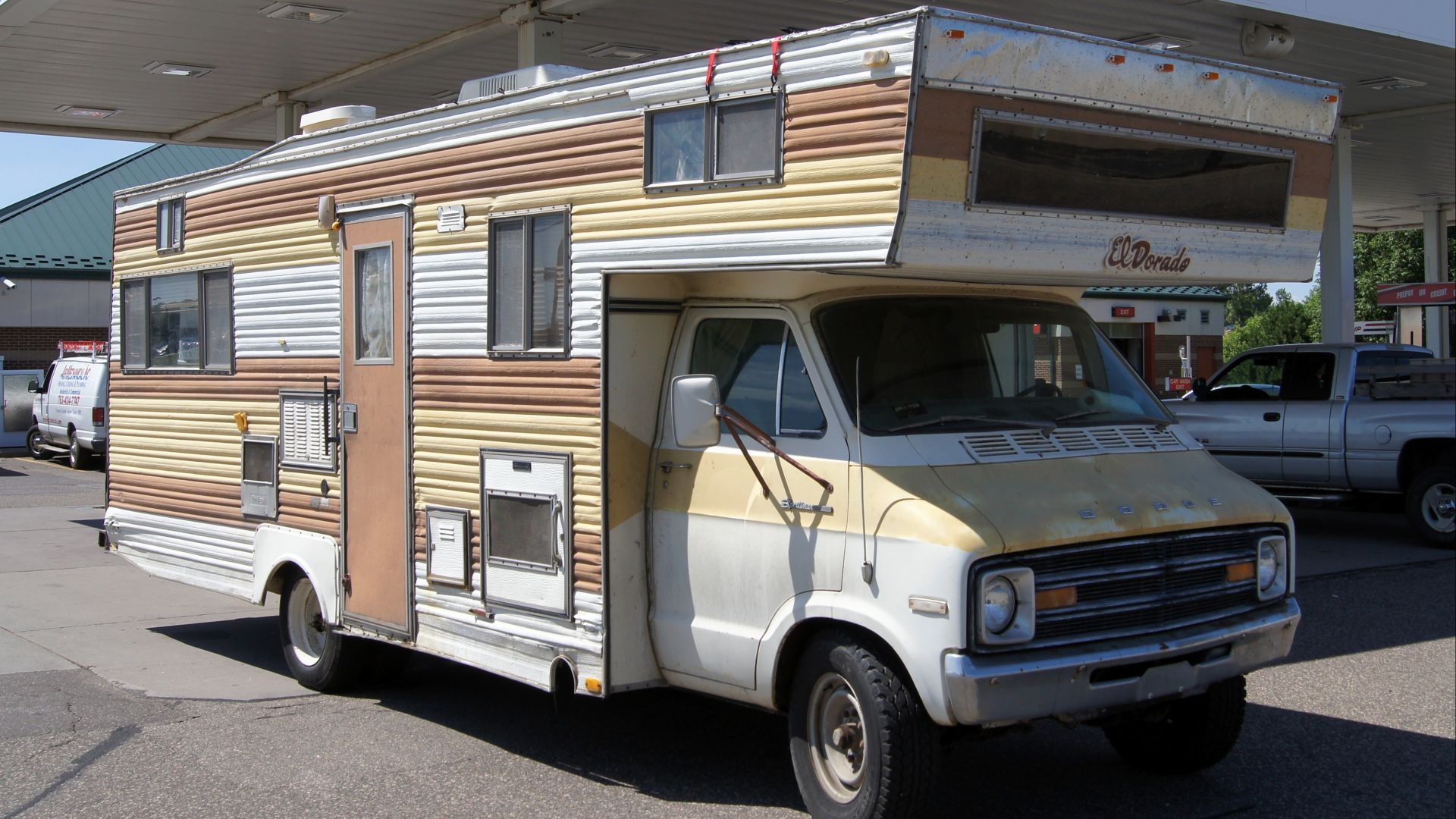 Greg Gjerdingen from Willmar, USA, Wikimedia Commons
Greg Gjerdingen from Willmar, USA, Wikimedia Commons
Using Non-Compliant Aftermarket Parts
Modifying your travel trailer with aftermarket parts that don’t meet local regulations can create legal issues, especially concerning emissions or safety features. Non-compliant parts, like exhaust systems or suspension lifts, can affect your RV’s registration and result in fines or the need to re-certify the vehicle to comply with state laws.
 Grand Canyon NPS, Wikimedia Commons
Grand Canyon NPS, Wikimedia Commons
Not Following Park-Specific Rules
Each state park and campground has unique regulations that need to be followed. From length restrictions to the duration of stays, not adhering to park-specific rules can result in fines or forced eviction. Make sure to familiarize yourself with the park’s guidelines to avoid trouble during your stay.
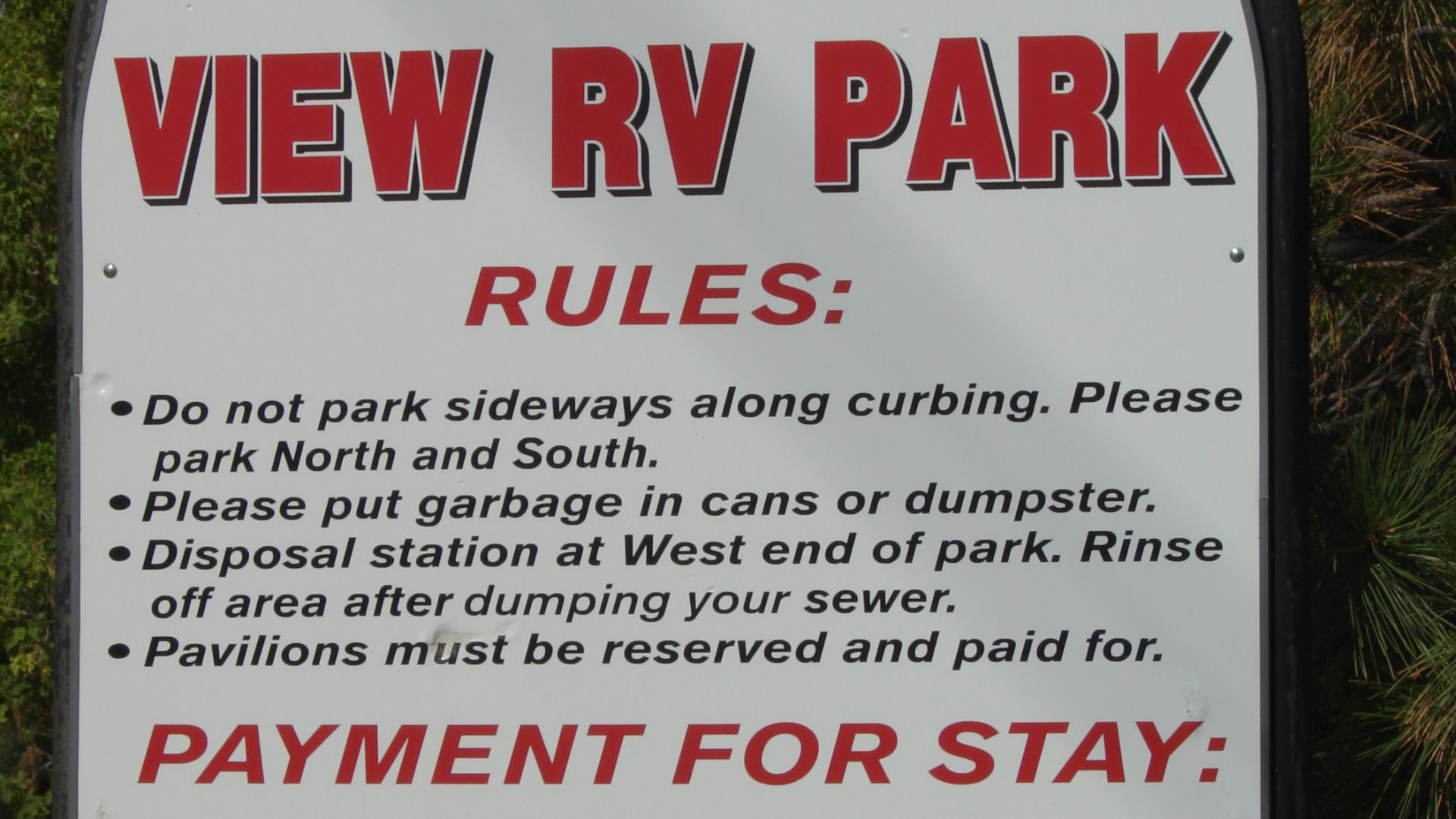 An Errant Knight, Wikimedia Commons
An Errant Knight, Wikimedia Commons
Improperly Attaching Towing Equipment
When towing a vehicle or trailer, it’s essential to ensure that all equipment is securely attached. Failing to properly hook up your RV’s towing system can cause accidents or violate state laws. Always check that the hitch and safety chains are in place before hitting the road to avoid legal and safety issues.
 How To Hook Up a Weight Distribution Hitch | RV Basics by Camping World Tutorials
How To Hook Up a Weight Distribution Hitch | RV Basics by Camping World Tutorials
Setting Up Camp Without Paying Fees
In some areas, camping fees are required to access RV sites and facilities. Failing to pay these fees, whether intentionally or out of oversight, is illegal. Campgrounds often have staff who monitor payment, and evading fees can result in forced removal or even being banned from future use of the site.
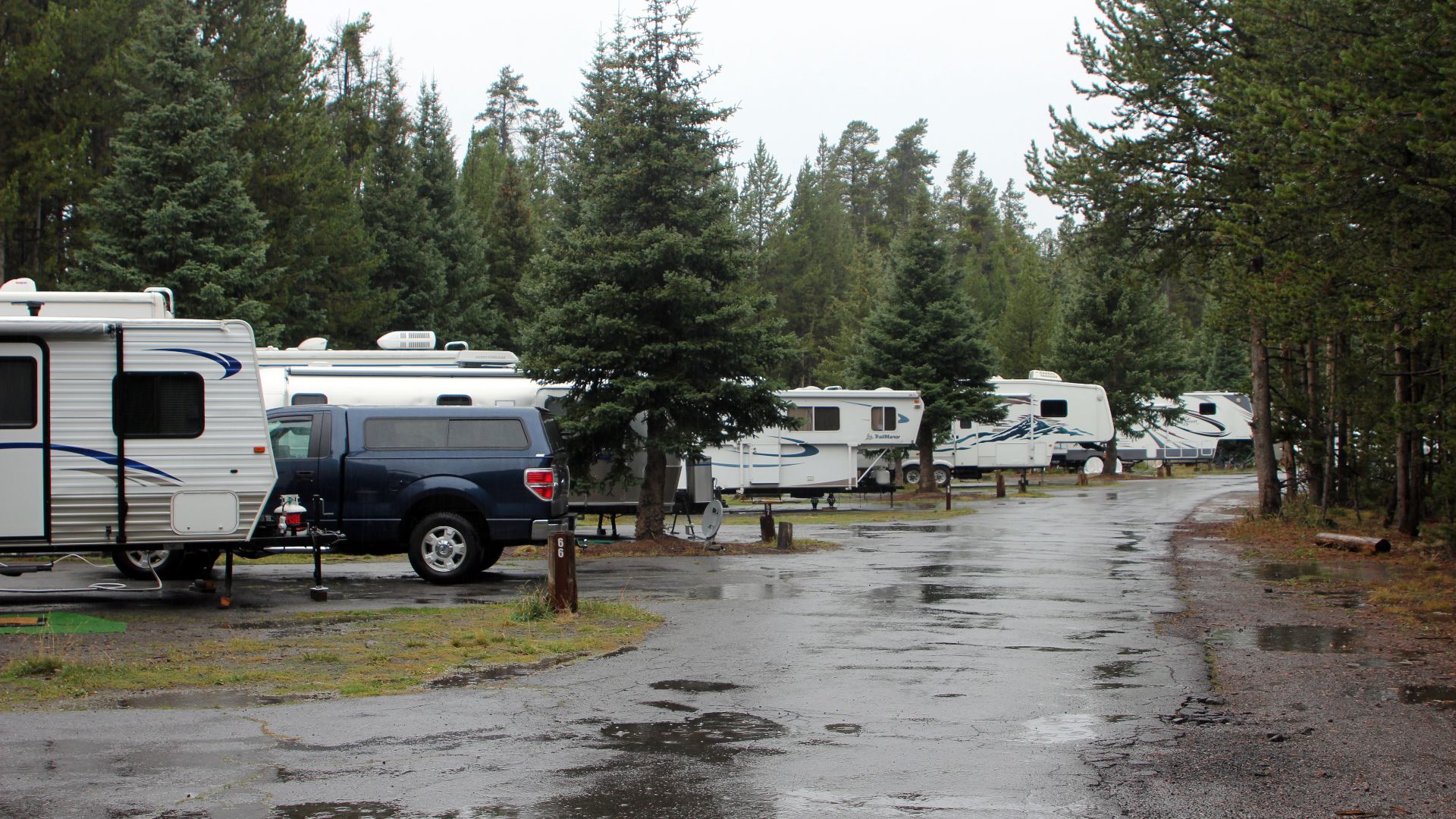 Yellowstone National Park from Yellowstone NP, USA, Wikimedia Commons
Yellowstone National Park from Yellowstone NP, USA, Wikimedia Commons
Violating Fire Safety Regulations
RVs are subject to strict fire safety laws, particularly in campgrounds or RV parks. Rules regarding grills and fire pits must be adhered to, especially during dry conditions. Violating these fire safety regulations can lead to fines and, in extreme cases, eviction from the park.
Operating Without Proper Mud Flaps
Particularly when towing, many motor homes are required to have mud flaps to prevent debris from damaging other vehicles on the road. Not having them installed could result in fines and cause unnecessary wear and tear on both your vehicle and others. Make sure to comply with local regulations to stay out of trouble.
 RV Transport 4 - Smart Solutions UltraGuard Mud Flap Install by Travelin Tim
RV Transport 4 - Smart Solutions UltraGuard Mud Flap Install by Travelin Tim
Storing Hazardous Materials Improperly
Transporting hazardous materials like fuel or propane requires special care. Improper storage of these items in your motorhome can violate safety regulations and cause serious safety hazards. Always store chemicals and flammable materials according to manufacturer guidelines to avoid fines and prevent dangerous accidents while traveling.
 RV How-To: Propane Tank Upgrade by Abom Adventures
RV How-To: Propane Tank Upgrade by Abom Adventures
Leaving Trash Behind
Leaving trash in campgrounds is considered littering. It may seem harmless to leave behind a few wrappers, but improper disposal of waste can damage the environment and violate local laws. Always pack out what you bring in, keeping the beauty of nature intact and avoiding financial penalties.
 PeopleImages.com - Yuri A, Shutterstock
PeopleImages.com - Yuri A, Shutterstock
Not Reporting An RV Accident
It’s legally required to report any RV accident involving property damage or injuries. If you don’t do it, you could face legal consequences. Properly documenting and reporting the incident ensures that insurance claims are filed correctly and helps protect you in the event of a dispute.
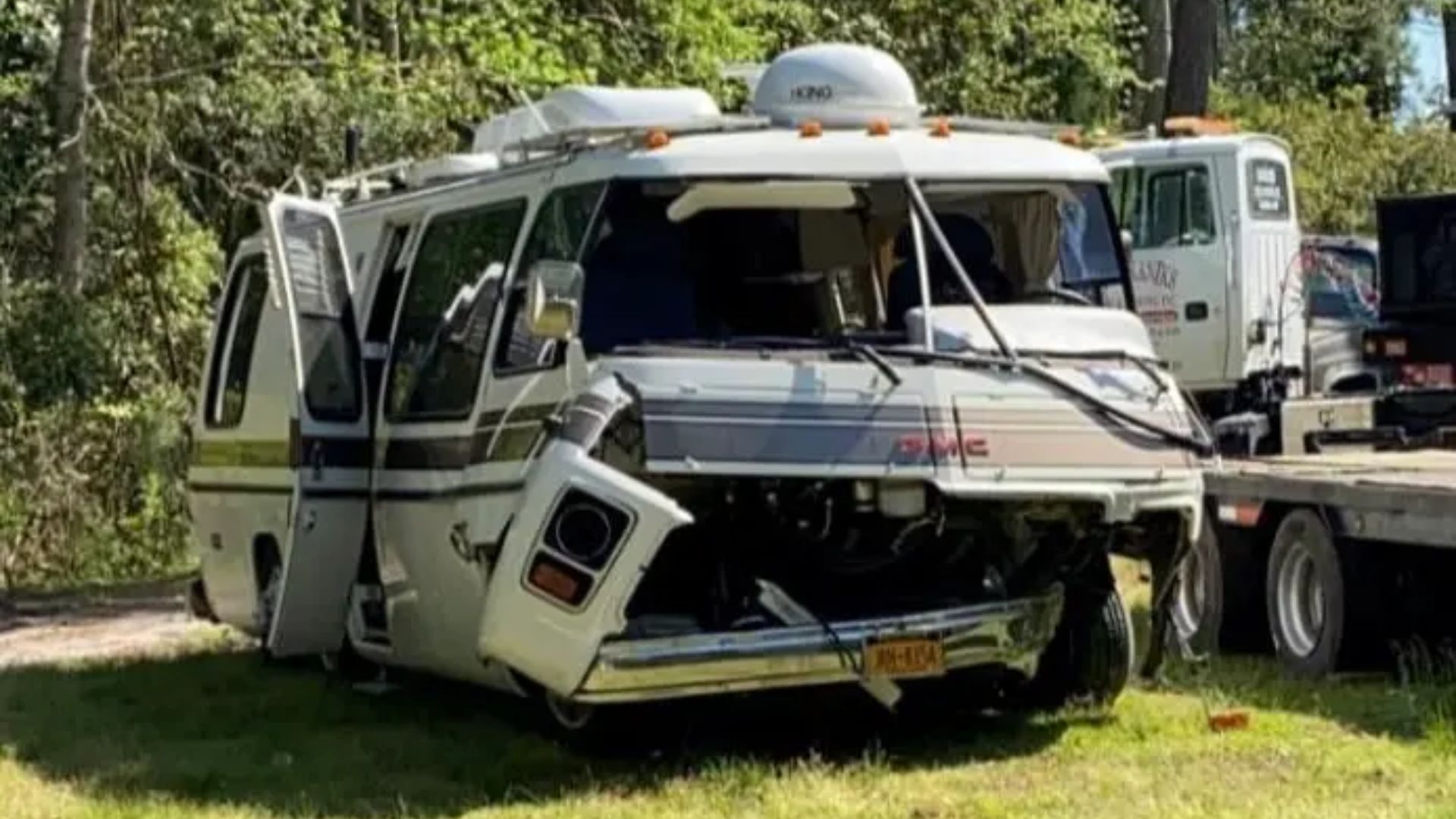 Waccolon-sp, Wikimedia Commons
Waccolon-sp, Wikimedia Commons
Towing In The Wrong Lane
When towing a trailer, RVers must follow lane-specific regulations, including staying out of certain lanes on highways. Towing in an improper lane not only disrupts traffic flow but also violates road laws in some states. Always be aware of the towing lane restrictions to avoid punishment and maintain smooth travel.
Not Securing Your Pets While Driving
In many states, not properly securing your pets while driving a mobile home is considered a violation of safety laws. Pets should be safely harnessed or placed in secure carriers to avoid distraction and injury. Failing to do so can harm your pet and result in fines or legal action for endangering passengers.
Failing to Display Registration or License Plate
An RV must display valid registration and license plates at all times while on the road. In some cases, not displaying these can result in citations or towing. If you're traveling across state lines, make sure your registration is up to date and easily visible to avoid trouble with law enforcement.
Disregarding Speed Limits
Speeding isn’t just risky—it’s illegal. Many RVers unknowingly exceed speed limits specific to larger vehicles, which can result in costly fines and safety hazards. Be sure to adjust your speed to match posted limits for RVs, as these vehicles require extra caution and longer stopping distances.
 picture alliance, Getty Images
picture alliance, Getty Images
Camping Without A Permit
In certain locations, camping without the proper permit is illegal, especially in national forests or protected areas. Ignoring permit requirements can lead to penalties and eviction from the site. Always check whether a permit is needed for camping, and secure one before setting up your motorhome to avoid legal issues.
Skipping Seat Belt Usage
Not buckling up in an RV can have serious consequences. While some may think seat belts are only for the driver, passengers in a caravan must be secured as well. Not wearing a seat belt can result in fines and jeopardize the safety of everyone on board during an emergency.

